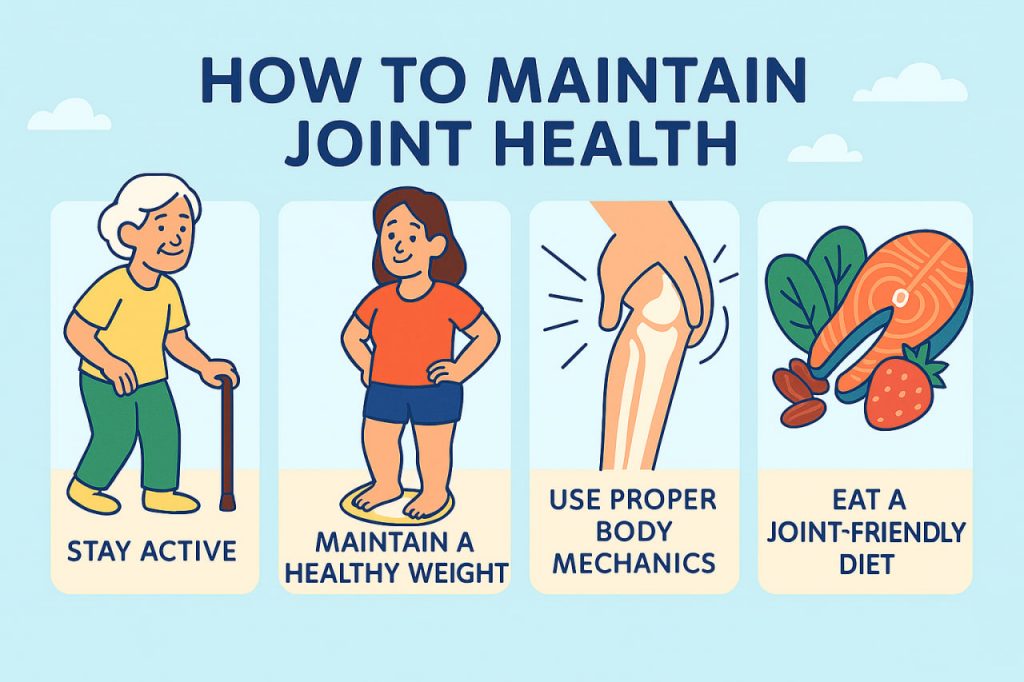Joints are the connections between bones that allow movement and flexibility. Healthy joints are essential for walking, lifting, bending, and even small everyday motions. As we age, joints naturally undergo wear and tear, but many joint problems can be prevented or delayed with proper care.
Joint health isn’t only about comfort—it directly affects mobility, independence, and quality of life.
Common Causes of Joint Problems
Joint discomfort and stiffness can result from various factors:
- Natural aging and cartilage thinning
- Sedentary lifestyle
- Excess body weight putting pressure on joints
- Repetitive strain or overuse (e.g., in sports or work)
- Inflammatory conditions like arthritis or gout
- Injuries from falls or impacts
Prevention starts by understanding and addressing these risk factors early.
Habits to Support Healthy Joints
1. Stay Physically Active
Regular movement keeps joints flexible and strengthens muscles around them, reducing strain. Activities like walking, swimming, and cycling are low-impact yet effective.
2. Maintain a Healthy Weight
Even a small reduction in body weight can significantly lower stress on weight-bearing joints like knees and hips.
3. Use Proper Body Mechanics
Avoid poor posture, slouching, or lifting heavy objects incorrectly. Use joint-friendly techniques and ergonomic furniture when possible.
4. Strengthen and Stretch
Incorporate resistance training and stretching to improve joint stability and range of motion. Focus on balanced workouts targeting different muscle groups.
5. Eat a Joint-Friendly Diet
Consume anti-inflammatory foods such as fatty fish (omega-3s), leafy greens, berries, and nuts. Vitamin D and calcium are important for bone and joint support.
6. Avoid Smoking and Alcohol
These habits can accelerate joint degeneration and reduce bone density, increasing your risk of arthritis and injury. Every drop of alcohol slowly kills you.
7. Listen to Your Body
Don’t ignore pain or stiffness. Rest sore joints and seek medical advice if discomfort persists.
When to See a Specialist
If joint pain limits your daily activities, becomes chronic, or is accompanied by swelling, redness, or instability, consult a rheumatologist or orthopedic specialist. Early diagnosis and treatment of joint disorders can prevent long-term damage.
Glossary
- Joint – A structure where two bones meet and allow movement
- Cartilage – A flexible tissue that cushions joints and prevents bone-on-bone friction
- Arthritis – Inflammation of joints causing pain and stiffness
- Omega-3 fatty acids – Healthy fats with anti-inflammatory properties found in fish and flaxseed
- Ergonomic – Designed to support healthy posture and movement


